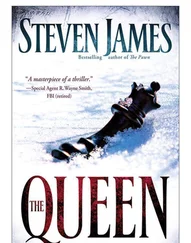Steven Dubner - Freakonomics
Здесь есть возможность читать онлайн «Steven Dubner - Freakonomics» весь текст электронной книги совершенно бесплатно (целиком полную версию без сокращений). В некоторых случаях можно слушать аудио, скачать через торрент в формате fb2 и присутствует краткое содержание. Жанр: Старинная литература, на русском языке. Описание произведения, (предисловие) а так же отзывы посетителей доступны на портале библиотеки ЛибКат.
- Название:Freakonomics
- Автор:
- Жанр:
- Год:неизвестен
- ISBN:нет данных
- Рейтинг книги:3 / 5. Голосов: 1
-
Избранное:Добавить в избранное
- Отзывы:
-
Ваша оценка:
- 60
- 1
- 2
- 3
- 4
- 5
Freakonomics: краткое содержание, описание и аннотация
Предлагаем к чтению аннотацию, описание, краткое содержание или предисловие (зависит от того, что написал сам автор книги «Freakonomics»). Если вы не нашли необходимую информацию о книге — напишите в комментариях, мы постараемся отыскать её.
Freakonomics — читать онлайн бесплатно полную книгу (весь текст) целиком
Ниже представлен текст книги, разбитый по страницам. Система сохранения места последней прочитанной страницы, позволяет с удобством читать онлайн бесплатно книгу «Freakonomics», без необходимости каждый раз заново искать на чём Вы остановились. Поставьте закладку, и сможете в любой момент перейти на страницу, на которой закончили чтение.
Интервал:
Закладка:
Meanwhile, Isaiah and Emily’s friend Ricky doesn’t have any books at home. But Ricky goes to the library every day with his mother; Ricky is a reading fiend.
And yet he does worse on his school tests than either Emily or Isaiah.
What are we to make of this? If reading books doesn’t have an impact on early childhood test scores, could it be that the books’ mere physical presence in the house makes the children smarter? Do books perform some kind of magical osmosis on a child’s brain? If so, one might be tempted to simply deliver a truckload of books to every home that contains a preschooler.
That, in fact, is what the governor of Illinois tried to do. In early 2004, Governor Rod Blagojevich announced a plan to mail one book a month to every child in Illinois from the time they were born until they entered kindergarten. The plan would cost $26 million a year. But, Blagojevich argued, this was a vital intervention in a state where 40 percent of third graders read below their grade level. “When you own [books] and they’re yours,” he said, “and they just come as part of your life, all of that will contribute to a sense…that books should be part of your life.”
So all children born in Illinois would end up with a sixty-volume library by the time they entered school. Does this mean they would all perform better on their reading tests?
Probably not. (Although we may never know for sure: in the end, the Illinois legislature rejected the book plan.) After all, the ECLS data don’t say that books in the house cause high test scores; it says only that the two are correlated.
How should this correlation be interpreted? Here’s a likely theory: most parents who buy a lot of children’s books tend to be smart and well educated to begin with. (And they pass on their smarts and work ethic to their kids.) Or perhaps they care a great deal about education, and about their children in general.
(Which means they create an environment that encourages and rewards learning.) Such parents may believe—as fervently as the governor of Illinois believed—that every children’s book is a talisman that leads to unfettered intelligence. But they are probably wrong. A book is in fact less a cause of intelligence than an indicator.
So what does all this have to say about the importance of parents in general?
Consider again the eight ECLS factors that are correlated with school test scores:
• The child has highly educated parents.
• The child’s parents have high socioeconomic status.
• The child’s mother was thirty or older at the time of her first child’s birth.
• The child had low birthweight.
• The child’s parents speak English in the home.
• The child is adopted.
• The child’s parents are involved in the PTA.
• The child has many books in his home.
And the eight factors that are not:
• The child’s family is intact.
• The child’s parents recently moved into a better neighborhood.
• The child’s mother didn’t work between birth and kindergarten.
• The child attended Head Start.
• The child’s parents regularly take him to museums.
• The child is regularly spanked.
• The child frequently watches television.
• The child’s parents read to him nearly every day.
To overgeneralize a bit, the first list describes things that parents are; the second list describes things that parents do. Parents who are well educated, successful, and healthy tend to have children who test well in school; but it doesn’t seem to much matter whether a child is trotted off to museums or spanked or sent to Head Start or frequently read to or plopped in front of the television.
For parents—and parenting experts—who are obsessed with child-rearing technique, this may be sobering news. The reality is that technique looks to be highly overrated.
But this is not to say that parents don’t matter. Plainly they matter a great deal.
Here is the conundrum: by the time most people pick up a parenting book, it is far too late. Most of the things that matter were decided long ago—who you are, whom you married, what kind of life you lead. If you are smart, hardworking, well educated, well paid, and married to someone equally fortunate, then your children are more likely to succeed. (Nor does it hurt, in all likelihood, to be honest, thoughtful, loving, and curious about the world.) But it isn’t so much a matter of what you do as a parent; it’s who you are. In this regard, an overbearing parent is a lot like a political candidate who believes that money wins elections, whereas in truth, all the money in the world can’t get a candidate elected if the voters don’t like him to start with.
In a paper titled “The Nature and Nurture of Economic Outcomes,” the economist Bruce Sacerdote addressed the nature-nurture debate by taking a long-term quantitative look at the effects of parenting. He used three adoption studies, two American and one British, each of them containing in-depth data about the adopted children, their adoptive parents, and their biological parents.
Sacerdote found that parents who adopt children are typically smarter, better educated, and more highly paid than the baby’s biological parents. But the adoptive parents’ advantages had little bearing on the child’s school performances. As also seen in the ECLS data, adopted children test relatively poorly in school; any influence the adoptive parents might exert is seemingly outweighed by the force of genetics. But, Sacerdote found, the parents were not powerless forever. By the time the adopted children became adults, they had veered sharply from the destiny that IQ alone might have predicted. Compared to similar children who were not put up for adoption, the adoptees were far more likely to attend college, to have a well-paid job, and to wait until they were out of their teens before getting married. It was the influence of the adoptive parents, Sacerdote concluded, that made the difference.
Levitt thinks he is onto something with a new paper about black names. He wanted to know if someone with a distinctly black name suffers an economic penalty. His answer—contrary to other recent research—is no. But now he has a bigger question: Is black culture a cause of racial inequality or is it a consequence? For an economist, even for Levitt, this is new turf—“quantifying culture,” he calls it. As a task, he finds it thorny, messy, perhaps impossible, and deeply tantalizing.
—THE N EW Y ORK T IMES M AGAZINE, AUGUST 3, 2003
6
Perfect Parenting, Part II; or: Would a Roshanda
by Any Other Name Smell as Sweet?
Obsessive or not, any parent wants to believe that she is making a big difference in the kind of person her child turns out to be. Otherwise, why bother?
The belief in parental power is manifest in the first official act a parent commits: giving the baby a name. As any modern parent knows, the baby-naming industry is booming, as evidenced by a proliferation of books, websites, and baby-name consultants. Many parents seem to believe that a child cannot prosper unless it is hitched to the right name; names are seen to carry great aesthetic or even predictive powers.
This might explain why, in 1958, a New York City man named Robert Lane decided to call his baby son Winner. The Lanes, who lived in a housing project in Harlem, already had several children, each with a fairly typical name. But this boy—well, Robert Lane apparently had a special feeling about this one. Winner Lane: how could he fail with a name like that?
Three years later, the Lanes had another baby boy, their seventh and last child.
For reasons that no one can quite pin down today, Robert decided to name this boy Loser. It doesn’t appear that Robert was unhappy about the new baby; he just seemed to get a kick out of the name’s bookend effect. First a Winner, now a Loser. But if Winner Lane could hardly be expected to fail, could Loser Lane possibly succeed?
Читать дальшеИнтервал:
Закладка:
Похожие книги на «Freakonomics»
Представляем Вашему вниманию похожие книги на «Freakonomics» списком для выбора. Мы отобрали схожую по названию и смыслу литературу в надежде предоставить читателям больше вариантов отыскать новые, интересные, ещё непрочитанные произведения.
Обсуждение, отзывы о книге «Freakonomics» и просто собственные мнения читателей. Оставьте ваши комментарии, напишите, что Вы думаете о произведении, его смысле или главных героях. Укажите что конкретно понравилось, а что нет, и почему Вы так считаете.











